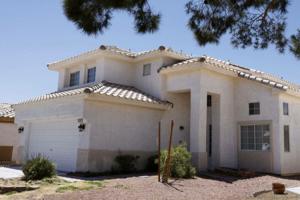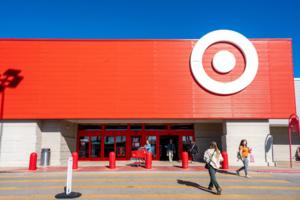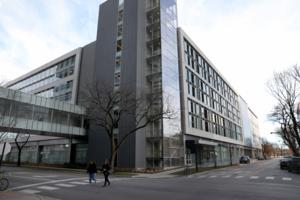Business
/ArcaMax

Bed Bath & Beyond chairman says he won't reopen stores in 'overregulated, expensive and risky' California
As Bed Bath & Beyond emerges from a bankruptcy that forced the closure of all its stores, the company's executive chairman took aim at California, saying he refuses to reopen locations in the state.
"California has created one of the most overregulated, expensive, and risky environments for businesses," Beyond, Inc. executive chairman Marcus ...Read more

Cracker Barrel sinks as new logo sparks Bud Light-like backlash
The slide in Cracker Barrel Old Country Store Inc.’s shares deepened on Thursday as a conservative backlash to the restaurant chain’s logo change intensified across social media.
Shares of the Southern-inspired casual dining operator, known for its homestyle cooking, fell as much as 15% as negative posts, including one from Donald Trump Jr....Read more

Consumers are still budget-conscious, and more are choosing Walmart than Target
Walmart continues to gain momentum — and market share — as back-to-school shopping winds down, leaving competitors like Target struggling to keep up.
Executives at both companies said they remain cautious about the all-important holiday shopping season, as tariffs slowly push up prices.
However, Walmart executives said Thursday consumers ...Read more
International Paper to close 4 Georgia mills, affecting 1,100 workers
SAVANNAH — Paper products giant International Paper is shuttering four southeast Georgia facilities, including a nearly 90-year-old mill in Savannah that was the city’s first major manufacturer.
The closures will affect 1,100 hourly and salaried workers in Savannah, neighboring Port Wentworth and Riceboro, located about 45 minutes south of ...Read more

Colorado's new noncompete rules seek to boost patients' rights
The days when a doctor or dentist mysteriously disappeared without sharing a word with their patients could be a thing of the past in Colorado following the implementation of new rules on nondisclosure and nonsolicitation agreements.
Companies use noncompete agreements to protect trade secrets and vital information, and nonsolicitation ...Read more

Does Las Vegas still offer value to visitors? Depends on who you ask
Las Vegas used to sell the fantasy that a pauper could live like a prince for a reasonable price. It was a proposition built on providing value that helped cement the city’s reputation as one of the world’s premier tourist destinations.
In 2025, that fantasy is costly, the perks are fading, and the city’s hard-earned reputation for value ...Read more

Invitation Homes is likely the second largest homeowner in the Las Vegas Valley
A Dallas-based, Wall Street-traded firm owns 3,397 rental homes in the Las Vegas Valley, according to the company.
Invitation Homes, a publicly traded real estate investment trust, confirmed the number in an email response to the Las Vegas Review-Journal. The company, with a current market cap of $18.5 billion, owns approximately 85,138 homes ...Read more
Real estate Q&A: Do we need to undo converted garage built by previous owner?
Q: We bought a house a few years ago that has a converted garage, which the seller told us was done by the book. When we recently put in a shed, the town sent someone out to inspect it. The inspector noticed our converted garage and wrote us a citation. Now they are saying we need to remove the improvements and turn it back into a garage. Do we ...Read more

'The whole town is slower': Las Vegas economy hits the brakes
LAS VEGAS — When Mike Tafoya opened a dessert shop along the Las Vegas Strip, he was banking on strong foot traffic to drive sales.
He’s near the Las Vegas Convention Center and gets a boost when conferences are in town. But he normally isn’t too busy on weekdays, and neighboring shops also are grappling with a slowdown.
Overall, ...Read more

Graffiti-tarnished towers in downtown LA remain in limbo
LOS ANGELES — Early last year, vandals breached fencing, climbed dozens of flights of stairs and painted bold, colorful graffiti on the exterior of three unfinished high-rises that make up the abandoned Oceanwide Plaza development.
The so-called Graffiti Towers — visible from great distances on the 110 Freeway and looming over thousands of ...Read more

Michael Hiltzik: Here's why you don't want the Trump administration to buy stock in Intel
Back in 1935, the drafters of Social Security told Congress of their plans to build up a government pension reserve that would reach $47 billion.
The number shocked lawmakers. It was nearly three times the outstanding federal debt of the time.
"What in heaven's name are you going to do with $47 billion?" Sen. Arthur Vandenberg, Republican of ...Read more

Commentary: Celebrating National Black Business Month
Every August, National Black Business Month rolls around, and for a few weeks, social media lights up with hashtags and well-meaning posts about supporting Black-owned businesses. You'll see lists pop up—restaurants, bookstores, clothing lines—all run by Black entrepreneurs. Maybe your favorite coffee shop puts up a sign, or a big brand ...Read more

Target's sales continue to slide, and so does its stock
Target reported another drop in quarterly sales and a steep decline in profits Wednesday, signaling continued challenges for the Minneapolis-based retailer.
As the financial results were released in the morning, the company’s shares took a quick 10% dive before the markets opened. Shares recovered modestly during the day and closed Wednesday ...Read more
Alaska Airlines unveils new loyalty plan, premium credit card
Alaska Airlines introduced a new loyalty program and premium credit card Wednesday, marking another step in the airline’s effort to transform into a global carrier and compete with larger international airlines.
The new loyalty plan will combine Alaska and Hawaiian Airlines' existing frequent flyer programs under one umbrella, after the two ...Read more

Protesters occupy Microsoft HQ over Israel ties again; 18 arrested
Dozens of activists took over part of a plaza on Microsoft's campus for the second straight day on Wednesday, pressuring the company to cut ties with the Israeli government.
We will not stop, we will not rest, until you divest," chanted protesters, who set up an encampment protest in a newly renovated part of Microsoft's Redmond campus on ...Read more

UChicago Medicine hopes to expand its cancer care nationwide, announces first affiliation with Kansas hospital
UChicago Medicine hopes to expand its cancer care across the country — becoming the latest hospital system to try to grow by working with health systems outside its home turf.
UChicago Medicine announced its first affiliation Tuesday with AdventHealth Cancer Institute Shawnee Mission in the Kansas City area. As part of the affiliation, ...Read more

Tech review: New accessories for your desktop or travel bag from Seenda
One of the best parts of my gig as a tech reviewer is the chance to try out gadgets that might not be on my radar otherwise.
As an IT guy, I spend a lot of my workday on my computer, and I’ve worked my way through a lot of computer accessories such as keyboards and mice to settle on which ones I want to use daily.
Recently, I’ve been ...Read more

Evan Ramstad: The vibe isn't great at Target today, but things were much worse in 2014
The vibe is tough at Target these days.
Once widely beloved by social activists and fast-casual fashionistas, Minneapolis-based Target now is accused by Black media leaders and activists of turning its back on diversity. Investors think the retailer missed out on data centers. And President Donald Trump’s tariffs may wipe out the company’s ...Read more

Guess? Inc. to go private in $1.4B acquisition
Guess? Inc., the Los Angeles-based fashion brand that specializes in denim, is going private in a $1.4-billion deal with Authentic Brands Group.
Under the terms of the deal, the company’s co-founders Maurice and Paul Marciano, as well as chief executive Carlos Alberini, will own 49% of its intellectual property. Authentic Brands Group will ...Read more

Trump targets corporate America to achieve economic and foreign policy goals
He didn’t campaign on it. It wasn’t even broached during his first administration. He criticized his predecessor for it.
But this month President Donald Trump made clear that he’s willing to use the full force of the US government to directly intervene in corporate matters to achieve his economic and foreign policy goals.
Trump, backed...Read more
Popular Stories
- Target's sales continue to slide, and so does its stock
- Commentary: Celebrating National Black Business Month
- Protesters occupy Microsoft HQ over Israel ties again; 18 arrested
- Alaska Airlines unveils new loyalty plan, premium credit card
- Does Las Vegas still offer value to visitors? Depends on who you ask










